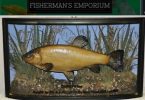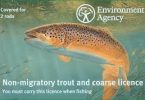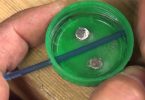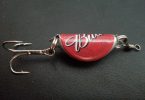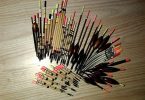A summary of the impact of pelleted baits on the health of coarse fish.
– prepared of research conducted by Dr Bruno Broughton B.Sc. (Hons), Ph.D., F.I.F.M.
Fisheries Management Consultant
Recently, a growing body of evidence* has come to light to indicate that trout pellets can have adverse impacts on the health of carp and other coarse fish species. Specifically, it seems clear that the immune systems of the fish can be damaged and degraded as a consequence of a diet which includes large quantities of trout pellets rich in protein and oil.
Predisposing factors which can lead to these health problems include;-
high fish stock densities
the absence of ‘no-fishing’ refuges
repeated capture by anglers
poor overall nutrition.
Under these circumstances, the fish may become susceptible to bacterial diseases when trout pellets comprise a significant proportion of their diets – 50% or more, according to some researchers.
Typical symptoms include the development of red sores which deteriorate into deep, open wounds, and these may be accompanied by other lesions, fin rot and secondary infections. Within a short period serious fish mortalities often ensue. Small carp are particularly vulnerable, although other coarse fish have been affected.
Research into the nutritional requirements of trout and coarse fish reveals significant differences in what constitutes an ideal diet. Trout will grow satisfactorily on food containing animal protein of 45-50% or more, with an oil content as high as 20% . This diet is inappropriate for coarse fish, which are more suited to lower concentrations of oil and protein – preferably of vegetable origin – and a higher carbohydrate content.
The development of coarse fish pellets has been aimed at meeting the nutritional needs of coarse fish. They provide the fish with a ‘complete diet’, enabling them to grow quickly without any risks to their health. The incorporation into the pellets of balanced quantities of various additives – carotenoids, inosital, glucans and vitamin C – is particularly noteworthy: these additives can promote healthy growth, reinforce the immune systems of fish and enable them to combat infections.
There are also spin-off benefits to ecology of intensely-used fisheries where the ‘new’ pellets are used by anglers. The lower protein content diminishes the excretion by fish of waste products rich in nitrogen and phosphorus. This, in turn, will restrict the development of dense algal blooms which, otherwise, can cause deoxygenation during hot weather.
In addition, coarse pellets will help prevent the bed of fisheries becoming covered in deep layers of foul-smelling, nitrogenous silt which curtails the growth of most water plants and invertebrate animals.
**********
(* Information drawn from: six coarse fishery owners, three coarse fish farmers, the Environment Agency, a major fish pellet manufacturer, an independent fish biologist and documentary material drawn from several sources.)
**********
Additional Advice
For more advice on this or other similar topics, contact me on: bruno.broughton@virgin.net or at: Trenchard, Lower Bromstead Road, Moreton, Nr. Newport, Shrops. TF10 9DQ.
Tel: 01952 691515; Fax: 01952 691316.

